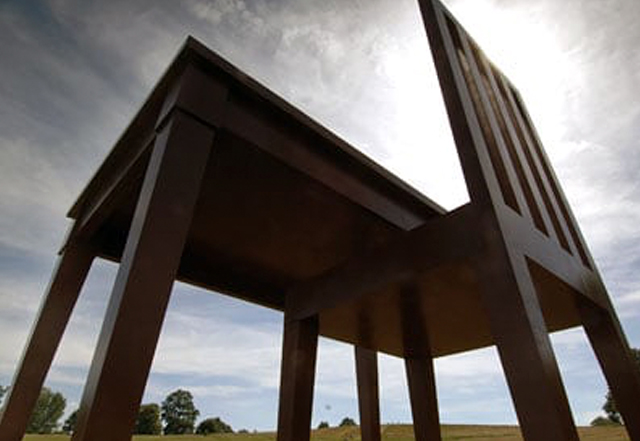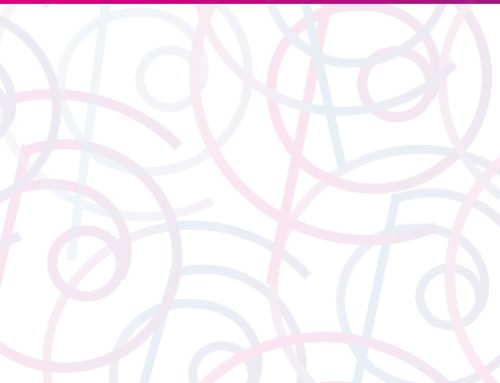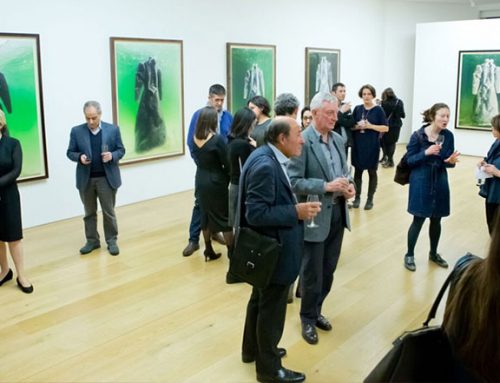Just because you don’t work in an office doesn’t mean you don’t have colleagues. Gather your network, says Juliet Simmons
“Are you leaning in?” Thanks to Sheryl Sandberg, today’s working women are mulling over a question that often seems to focus on the need to work harder and faster. But if you just step back or dig a little deeper, you’ll find that it’s not all about the hours that you put in – it’s also about taking advantages of the people and opportunities that come your way.
Before I’d even heard of Sandberg’s book, I was sold on the benefits of women supporting each other. That was despite the fact that I’d gone through most of my working life not really thinking about being a woman at work, just interested in getting the job done and getting on with my colleagues and bosses. ‘Are you leaning in?’ was not one of the questions that I was asking friends and colleagues. Instead, mine included, “How do I make these changes happen?” and “Is this happening to you too?” Perhaps those questions were about leaning in too.
A few years ago I found myself part of a small group of women mentored by Jude Kelly, artistic director at the Southbank Centre, as part of its Women of the World programme. We met for breakfast several times a year, talking and making the most of the experiences and knowledge that people brought to the group – in a collaborative rather than exploitative way. There was something empowering about being part of it. We came to realise that many of the challenges we faced day to day were not faced in isolation. Our eyes were opened to the power of a network of women.
When I left my job of six years as creative director of the Jewish Community Centre for London to start my own consultancy, I found myself wanting an excuse to meet some of the smart creative women I’d employed as consultants while I’d been working full time. These were women who’d returned to work after starting their families, women who had started their own businesses, but more important than all of that, they were people who inspired, challenged and supported me. I was hungry for regular intelligent conversations with them – I just needed to figure out a way to make that happen.
The Table
The answer was creating The Table, a group for women who freelance or run their own businesses. It meets every six to eight weeks in London and is an informal get together of like-minded souls, rather than what I think of as a traditional networking group. A typical gathering sees everyone introduce herself and if people have things that they want to discuss or issues they want help or advice with, they then bring them “to the table”.
You might find yourself sitting next to a lawyer or a photographer, a journalist or a radio producer, a voiceover artist, marketing consultant, HR director or museum curator – you just never know.
I think of it as a group of colleagues who help each other out, like the friends we’d all have in an office if we worked in one. The only two rules (the same ones set in the group Jude ran) are that only nice people can be invited to join – a pretty good rule for life in general – and that all the members must be women.
In the two years it’s been running, The Table has never been attended by the same group of people twice. It has grown sixfold from the initial gathering and after each meeting I get messages from people asking if a friend or colleague they know can join. Nobody is under any obligation to return, and everything that we discuss is done so in confidence.
So what’s the point of it? Honestly, it started out as a place where people would talk and connect on a personal level. Two years on there have been concrete outcomes too. A number of people who come to the meetings have ended up collaborating with each other to pitch for (and win) work with new clients. I know that it’s a place where job opportunities have been advertised – and people have found new work or recruited successfully by using the network.
Less concrete are the examples of emotional support and friendship it has offered. There are members of the group who have been there for each other as they’ve negotiated difficult contracts with challenging clients or navigated their way through contractual obstacles such as non-payment of invoices. On top of that, we’ve shared practical skills, knowledge and experience – learning more about social media, marketing and even where to find an accountant who speaks plain English.
As Jonathan Saffran Foer recently wrote in the New York Times: “Everyone is always in need of something that another person can give, be it undivided attention, a kind word or deep empathy. There is no better use of a life than to be attentive to such needs.”
At the heart of The Table and its success and growth is a realisation that in this technology-filled world, it’s human face-to-face contact and connections that help you in life. The Table is about connecting with smart creative people, realising that there’s a bit of smart and creative in all of us, and that we need others to fulfil that potential.
Ladies of the round table
Laura Granditer, film producer: “When I first came I wasn’t sure what to expect. Around the table sat a group of women with familiar concerns (finding the next project, setting costs and standards, how to negotiate working with other freelancers) – I remember finding the tone of the conversation surprisingly open, supportive, and encouraging.
“At that first meeting, I sat next to a woman who had all the skills I was hoping to acquire for myself – since then, we’ve developed a new working partnership and a lovely friendship, which is seeing me through my current stage of reinvention.”
Anne Joseph, freelance journalist: “When I embarked on a part-time MA as a mature student, I found adapting to studying and juggling it with work and family a challenge; my major concern being how to maintain my working profile. Not only was The Table supportive of my new role, it was suggested that I pitched a blog about being a working mother and a mature student to the Huffington Post, which I duly did.”
This article originally appeared on The Guardian’s website.






